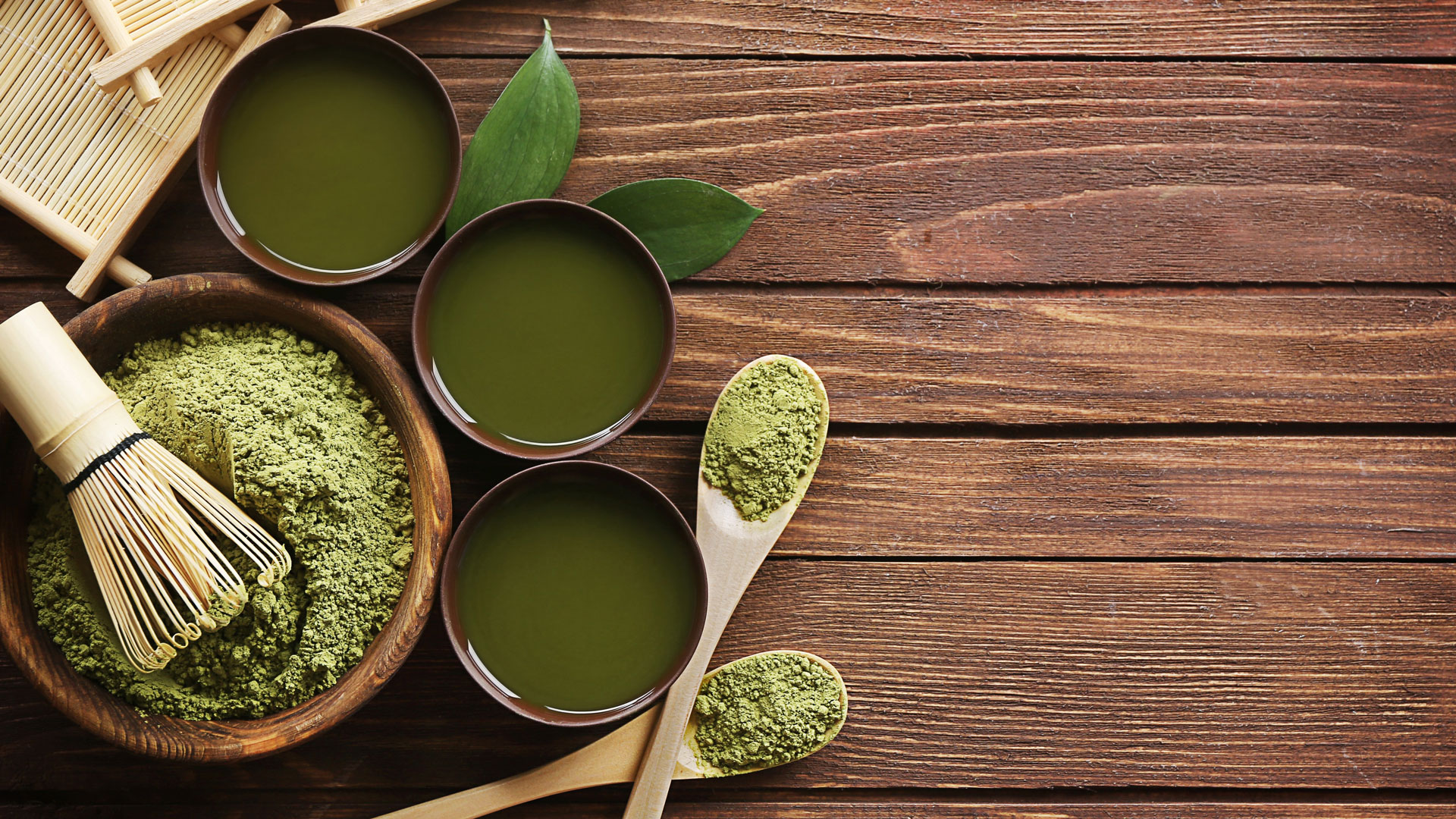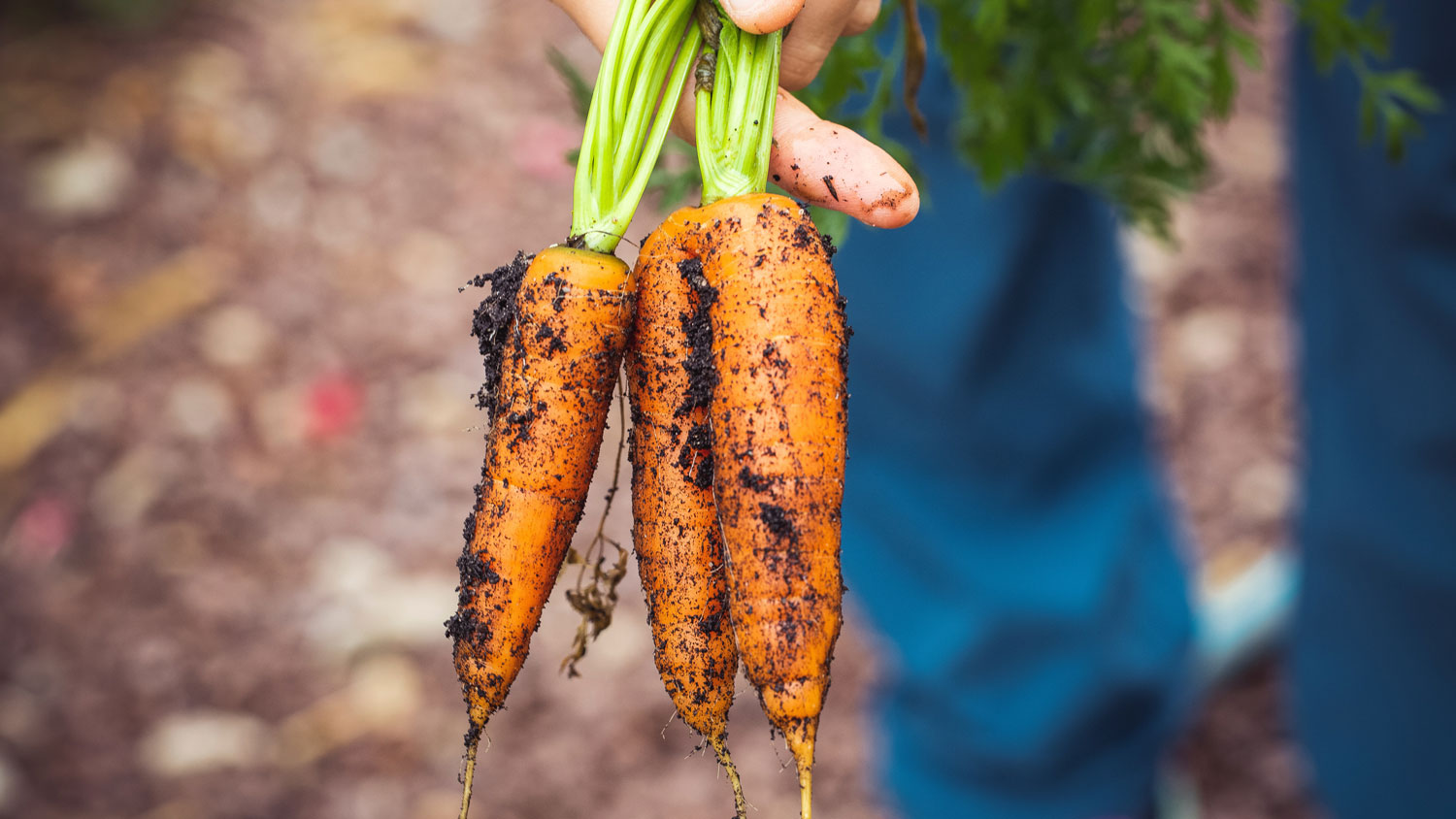Are superfoods a waste of money?
Should we be investing in our health and supplementing with these powerful health foods, or are they just a fad?


Get all the latest news, reviews, deals and buying guides on gorgeous tech, home and active products from the T3 experts
You are now subscribed
Your newsletter sign-up was successful
Do we really need superfoods in our diets? Do we need to be spending massive amounts of money on superfood powders and supplements? Gabrielle Masefield, an experienced professional chef specialising in healthy modern cuisine, gives her perspective. Not sure what we're talking about? Head to our What are superfoods? explainer first.
Many regular foods found easily at any supermarket have amazing nutritional properties and health benefits, and can be put under the term ‘superfood’ for their incredible impact on our health. These include dark leafy greens, berries, green tea, pulses/legumes, raw nuts and seeds, garlic, ginger, turmeric, avocado, wild salmon, mushrooms, fermented foods, seaweed and many others.
These foods are high in antioxidants, have dense amounts of important micronutrients and phytonutrients to support health, and are a vital part of a healthy diet.
- Monitor your health with one of the best fitness trackers
- Learn how to lower cholesterol
- Explore the smartest and best bathroom scales
Disappearing nutrients
However due to soil degradation and depletion from intensive modern farming, the soil our produce is grown in contains far fewer nutrients than it used to. As a result there may be fewer nutrients, vitamins and minerals in the fruits and vegetables coming from the soil. So a carrot pulled out of the ground today has fewer nutrients than it did fifty years ago.
Research into nutrient value of foods conducted by the British Food Journal between 1930 and 1980 found that in twenty common vegetables there was a 19% reduction in calcium content, 22% reduction in iron content and 14% reduction in potassium content as well as reduced levels of vitamin A and C, magnesium, zinc, copper, thiamine, riboflavin and niacin. These are significant reductions in a relatively short period of time and if this degradation continues at the same rate, these losses will have nearly doubled by today.
It has been shown that soils on organic farms with regenerative farming methods have much high levels of nutrients and are therefore passing this on to the vegetables that grow there. This is another reason why it is important to consume organic produce wherever possible aside from the chemical fertilisers and pesticides used in conventional farming.

Another factor contributing to this problem is that nutrient levels decrease every day after harvest and before getting to our plates. Our modern food system means that we are often eating fruits and vegetables that have travelled hundreds or even thousands of miles and may have been picked out of the ground a week or two before it gets into your shopping bag, and then how long do they sit the fridge before we eat them?
Get all the latest news, reviews, deals and buying guides on gorgeous tech, home and active products from the T3 experts
A study at the University of California showed that vegetables can lose 15-55% of vitamin C within a week, and spinach can lose 90% within 24 hours of harvest. That’s why it is so beneficial to buy vegetables from local markets, farmers' markets and farm shops wherever possible, as sometimes the vegetables you’re buying were pulled out of the ground the day before or even that morning which means that the nutrient density is so much higher. Not only that, you're also supporting local farmers and small businesses, which are sadly struggling to stay afloat.
Add to this startling level of nutrient depletion from soil degradation and shipping, the modern world is bombarding us with pollution and chemicals at every turn. This puts our body under greater stress and results in the need for even more nutrition to fight the adverse effects of environmental pollutants and stresses of our modern lives.
The need for supplements
So although it’s best to receive as many nutrients as possible from whole food sources, we just might not be getting enough of the good stuff to really cover all our bases with food alone. To support our diets, health and busy modern lives, it can be beneficial to supplement with some additional superfoods to bridge the gap in nutrients and cover all the bases.
However just one stroll around a health food store or certain corners of the internet can quickly make things seem overwhelming; how can you know which of these superfood supplements are right for you?
So here is a breakdown of my favourites that pretty much everyone can benefit from adding to their diet:
- For everyone: A good quality greens powder: look for a mix of spirulina, chlorella, wheatgrass, barley grass and moringa
- For immunity: Echinacea, rhodiola, rosehip, elderberry, reishi and astragalus
- For inflammation: Turmeric, ginger, collagen, biotin, selenium, grape skin extract, blueberry, raspberry, cranberry and pomegranate extracts, acai berry
- For workout recovery: MSM, magnesium, L-Glutamine, L-CArnetine, Beetroot powder
- For hormone balance: Maca, lucuma, ashwaganda, chasteberry, milk thistle, fenugreek, ginseng, saw palmetto
It is also important to be aware of the quality and provenance of the products you’re consuming, as many can be contaminated or packed with additional ingredients that you don’t want. Here are five things to look out for when buying supplements:
- Check the ingredients and ensure it’s 100% the nutrient you are buying with no added preservatives, stabilisers or fillers.
- Look for who the producer is and where it is being produced. They should be USP verified, hold various UKAS, ISO and GMP certificates. These ensure safe production practices and higher quality standards.
- Does the producer have any third party testing on their products? This might be difficult to find out but it is worth asking and doing some research on.
- Is it possible to see the certificate of analysis on batches of their products to show verified nutrition content, ingredients, manufacture date, expiry date etc.
- Quality of packaging. As with fresh produce, the nutrition content of supplements also decreases with time so ensuring packaging that is airtight and light protected is crucial. The best is aluminium pouches or vacuum sealed dark glass jars.
So basically, if you can’t find out anything on the company’s website about their quality standards and business practices, testing and producers, stay well away.
My favourite companies to buy from: Naturya, Your Super, Navitas, Planet Bio and Four Sigmatic but there are many great companies out there doing amazing jobs at creating products which are high quality, sustainably sourced and responsibly produced.
At the end of the day, there may be a lot of superfoods out there that are not worth the hype and if not produced responsibly might do more harm than good.
But starting with adding a greens powder to your routine is a great simple way to add some extra goodness to your diet, and pretty much everyone can benefit from a high quality green blend.
We should all be trying to get as much nutrition as possible from organic whole foods, but we also may need to give our diets a little boost with some high quality superfoods to help us reach ultimate health and wellbeing.
Gabrielle Masefield is an experienced professional chef specialising in healthy modern cuisine. She is trained in multiple different disciplines from traditional French cooking to modernist raw vegan cuisine as well as holding a diploma in holistic nutrition from the School of Natural Health Sciences.

Gabrielle Masefield is an experienced professional chef specialising in healthy modern cuisine. She is trained in multiple different disciplines from traditional French cooking to modernist raw vegan cuisine as well as holding a diploma in holistic nutrition from the School of Natural Health Sciences.